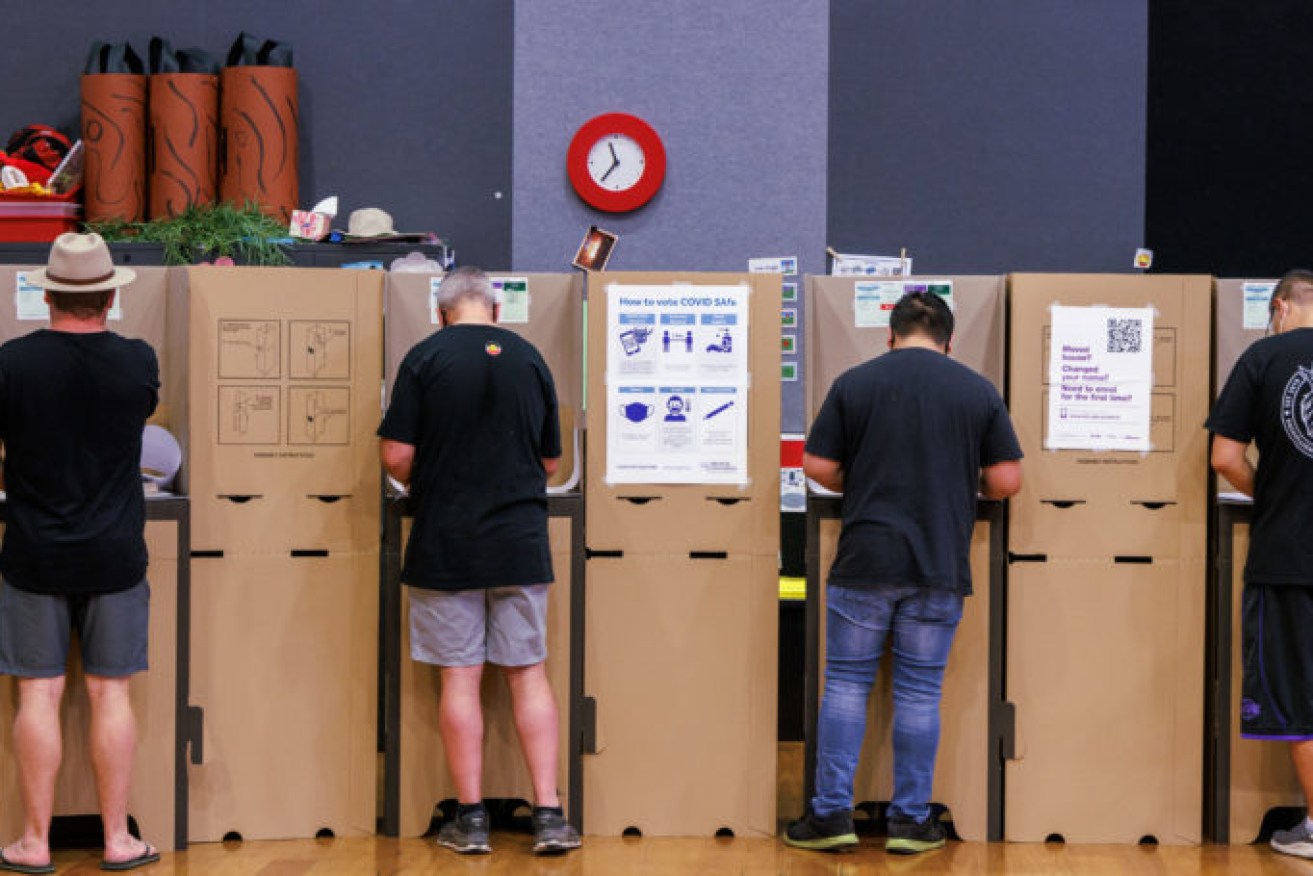Adelaide City Council backs compulsory voting
An Adelaide City Council submission to a statewide council election review favours compulsory voting, along with tighter criteria for who can take part in ballots.


The Adelaide City Council say if compulsory voting is introduced, voter participation could increase and in-person voting could be introduced for council elections. Photo: Tony Lewis/InDaily
The council wants compulsory voting in council elections to be introduced for those on the House of Assembly election roll, in line with other jurisdictions across Australia.
South Australia is one of the only states – along with WA – where voting in council elections is voluntary.
The Local Government Participation and Elections Review is looking at how engaged South Australians are with their local council, how diverse council members are, and how voter turnout can be increased.
Local Government Minister Geoff Brock launched the review after being disappointed by the voter turnout in the 2022 council elections.
Voter turnout for council elections has mainly hovered at between 31 and 34 per cent from 2003 to 2022, with the highest recorded at 40.1 per cent in 2000.
Brock told InDaily in October he wants to see turnout in the 70 per cent range.
The Adelaide City Council submission to the local government election review said “if compulsory voting is not introduced, voter participation will likely decrease”.
To develop the submission, councillors completed an anonymous survey so the council administration could develop a response that reflects the council’s views. Most councillors backed compulsory voting, with only one response against it.
The elections review has been going on for five months, with 49.8 per cent of respondents so far backing compulsory voting.
Submissions have now closed to councils and ratepayers to submit their views on the election review. The results will be made public in mid-2024 ahead of any proposed legislative reform.
Who should be able to vote in Council elections?
Another focus of suggestions from Adelaide City Council was on can vote in council elections, with members debating the eligibility of international students and non-citizen property owners in the weeks leading up to submitting their response.
In their response to the review, they suggested the application criteria for non-citizens to enrol to vote in council elections should be tightened to ensure there is a reasonable interest in the election outcome.
They suggest non-citizens who can enrol to vote in elections should be permanent residents or have the right to work and provide proof of identity, status and residence when completing their application to be on the council election roll.
70 per cent of councillors agreed with this recommendation, with others commenting that it’s a complex matter.
One member suggested a person should not be able to vote or nominate themselves as a councillor unless they’ve been a resident of the area for at least one year.
Another suggested a change like this requires more investigation “to avoid inadvertently discriminating against certain groups of people” such as refugees with temporary visas who are going through the “long and expensive” process of becoming permanent residents.
When the issue of who can vote was discussed at the City Finance and Governance Committee meeting on March 19, the eligibility of international students was raised.
Councillor Henry Davis said it was “outrageous” that international students who had lived here for one month could enrol and vote in council elections, saying it “undermines our confidence in the voting system”.
Lord Mayor Jane Lomax-Smith said the issue needed to be managed carefully.
“I don’t want to disenfranchise an international, non-naturalised resident who owns property and creates wealth,” she said.
Councillor Jing Li agreed with Lomax-Smith that the council could debate the length of residency for eligibility, but said international students and residents should still be able to participate in elections at the council level as council issues impact their lives.
“We want them to spend money here, move here, invest, get a job and now we’re talking about taking away their political rights,” Li said.
Li said that after April 15 the council would “have more clarity” on this matter, referring to the upcoming results of the court case concerning the 2022 Adelaide City Council Central Ward election.
The case concerns an alleged voter scam targeting international students in CBD apartment blocks.




